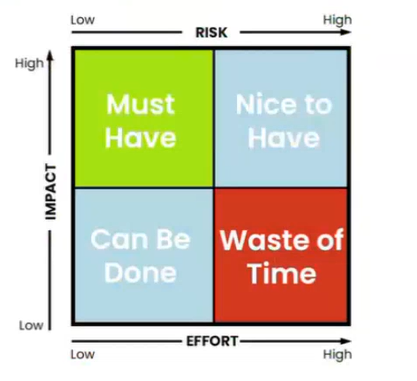
Is fear preventing you from making more ticket sales? Patrick Gray, our Chief Sales Officer explains….
Overcome these 7 common hurdles to successful transformation
Patrick Gray, our Chief Sales Officer, explains how attraction operators and event organisers can use Software as a Service (SaaS) systems to drive revenue and why changing your ticketing platform shouldn’t be painful. With 15+ years’ implementing new systems in the travel industry, he has identified the common pitfalls that can prevent operators completing projects and get the most value out of transformation.
So, you know that a new ticketing system will be a game-changer for your business but is fear of failure making you stall at the starting blocks rather than dream of finishing first? You may even have written the brief and found the perfect partner but what happens next?
Sadly, when it comes to implementing new systems, we know that attractions and operators in the leisure sector struggle hugely. These organisations fail to set things up properly and transformation takes more time – often three or four times longer – than it would in other industries. Too often, several hurdles stop projects in their tracks so they don’t make it across the finish line. This is where we can help.
#1 Fear
Many attractions operators use legacy systems that are decades old and, it is true that, the last time they implemented a new system it was a painful process. Whereas today, technologies have advanced so much that systems can be built and put online within days and weeks.
Mindset is a big barrier to adoption. Operators feel they need to understand dynamic pricing, integration and channel management and other technical terminology before changing systems. Lack of technical knowledge can make them fearful of making the wrong decision. Instead, it is your technology partner’s responsibility to manage this and speak the right language on your behalf. We’ve been in your shoes, to reassure you we simplify complex processes and present a clear plan with milestones, so you understand what is happening.
#2 Distraction
Find your reason for transforming your ticketing process and don’t deviate – this will ensure you achieve your business objectives. When you’re looking at different software providers, if your objective is to sell more tickets and at any point you feel ushered towards a platform that slows down the buying process, stop! The same applies at implementation, if the new platform doesn’t solve the problems you had with the old system, stop! You need to go back to the drawing board.

#3 The importance of human psychology
For humans, the buying process is innately rewarding so as much as consumers want to secure a bargain, they will be driven to complete a purchase. Supermarkets put essentials like milk deep in the store so shoppers are more likely to also buy other products, online ticket sellers can use similar principles to lead a customer to buy online. These include:
- Using dynamic pricing and limited availability to create a sense of urgency or “FOMO”
- Appealing to users’ “better selves” with charitable donation and Gift Aid functions
- Offering discounts, deals and freebies
- Making the buyer feel a part of something bigger through memberships and patronages, recommendations and exclusive events
- Tapping into people’s emotions with imagery and copy during the booking process
#4 “You don’t know what you don’t know”
This is one of our favourite expressions. Operators are commonly confined by what their current sales software allows them to do. Legacy systems breed inefficiencies and restrict improving the sales process because the team “has always done it that way”, “doesn’t know more is possible” or “is worried that change will be lengthy and troublesome”. Organisations settle for the fact that while 80% of their processes can be managed by their sales platform, it cannot cover 20% of offline processes. That’s often because they don’t know the technology capability exists and they do not know how to ask for it and something a technology partner like Expian helps with.
#5 Sticking to your lane
There is a danger that when you follow the crowd and copy what others in your industry are doing, you miss out on opportunities that your competitors weren’t aware of. Instead, learn from your wider network speak to organisations outside your industry.
When it comes to SaaS platforms, companies share more similarities than they realise so it’s worth talking to operators you wouldn’t normally speak to. Whether you’re a theatre or a theme park, a stadium or an aquarium, you will have similar behaviours you are trying to influence. Expian works with clients from across the travel and leisure sector, so we help clients to see the bigger picture, learn from others and create more effective processes.
#6 Underestimating your speed and not planning for disruption
Long tender and implementation processes are holding up transformation and delaying opportunities to create more sales. We understand that ticketing is fundamental to the day-to-day running of the business but in other industries I have implemented SaaS platforms of a similar magnitude within 6 months, so it is possible. So, if you are planning a 6-month tender process and allowing 8-12 months for implementation, ask yourselves why?
The implementation journey will take you down different paths and meet dead ends so build in time for delays, testing and for things to go wrong. However, this disruption doesn’t need to add months to your delivery timeline. If you have a good understanding of what you want to achieve, you will get there in the end.
#7 Not dedicating enough time, effort or resource
We’ve already heard how finding the perfect technology partner is akin to dating but setting up a SaaS system is a lot like parenting two small boys. They may start setting up a game and fighting over who gets to play with a particular toy but after the initial noise and chaos, they move onto something else and the game is left for someone else to continue or tidy away. I have seen this happen with SaaS projects, a lot of energy goes into launching systems, yet as soon as they are set up the responsibility and management gets thrown to someone else.
Transformation is an ongoing process. You need teams of people, willingness and processes long after the ink is dried on the contract and new systems are in place to successfully adopt change. This is why it is so important to have a technology partner that will make sure you reach your goal.
Looking to transform your ticketing system to drive more revenue and prepare for gold-medal worthy sales success? Expian will coach you from briefing to implementation and beyond. Contact Patrick Gray at Patrick.gray@expian.io to find out more.